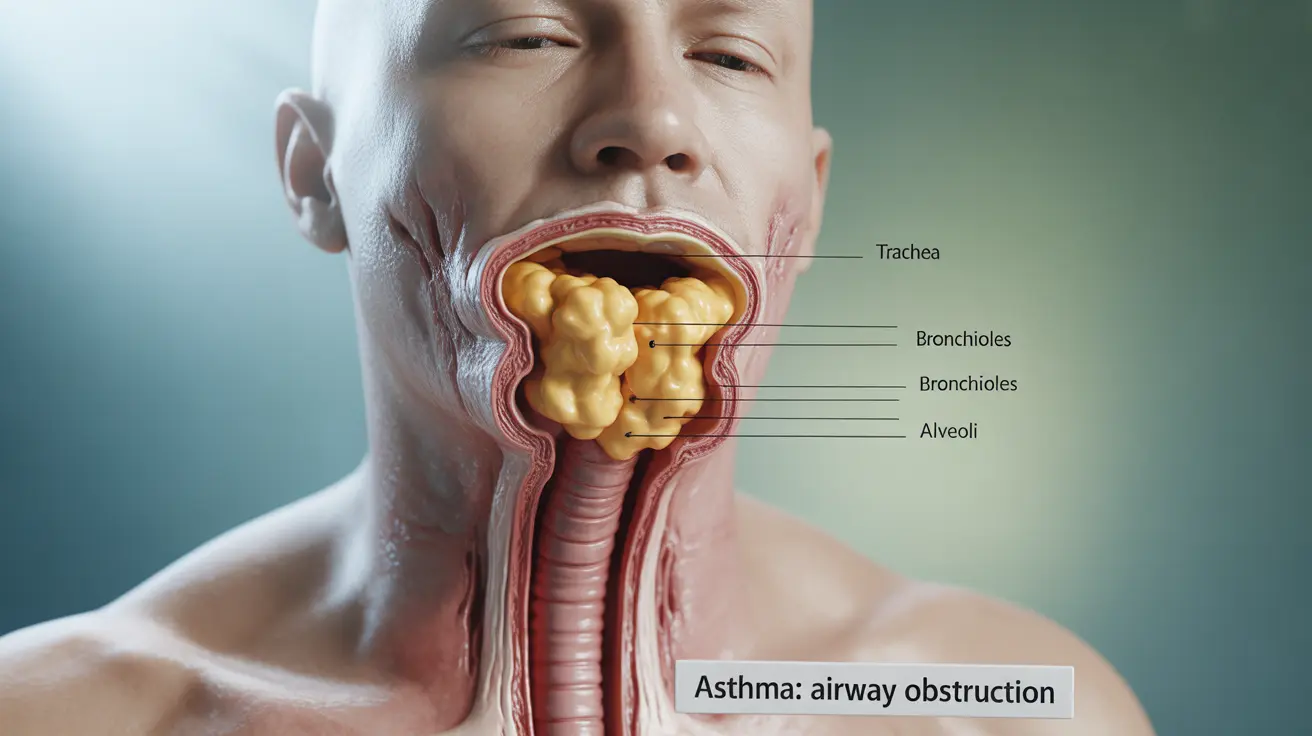If you have asthma and sometimes feel like there's something lodged in your throat, you're not alone. This common yet concerning sensation affects many people with asthma and can be both uncomfortable and anxiety-inducing. Understanding the connection between asthma and throat symptoms can help you better manage your condition and know when to seek medical attention.
While this feeling might be alarming, it's often related to how asthma affects your airways and throat. Let's explore why this happens and what you can do about it.
The Connection Between Asthma and Throat Sensations
Asthma primarily affects your airways, causing inflammation and narrowing that can create various sensations throughout your respiratory system. When your airways become inflamed, you might experience:
- Throat tightness
- A feeling of constriction
- Mucus accumulation
- Sensations of pressure or blockage
These symptoms often combine to create that distinctive feeling of something being stuck in your throat, which can be particularly noticeable during or before an asthma flare-up.
Common Causes of Throat Discomfort in Asthma
Airway Inflammation
During an asthma episode, your airways become inflamed and swollen, which can create pressure and discomfort that extends to your throat area. This inflammation can trigger nerve endings, leading to various sensations including the feeling of obstruction.
Mucus Production
Asthma often increases mucus production in your airways. This excess mucus can accumulate in your throat, contributing to the sensation of something being stuck there. The thickness and amount of mucus can vary, affecting how noticeable this feeling becomes.
Muscle Tension
The smooth muscles around your airways may tighten during an asthma episode, creating a sensation of constriction that can extend to your throat area. This muscle response is part of your body's reaction to asthma triggers.
Distinguishing Asthma from Other Conditions
It's important to note that the sensation of something stuck in your throat isn't unique to asthma. Several other conditions can cause similar feelings, including:
- Acid reflux or GERD
- Allergies
- Post-nasal drip
- Anxiety-related throat tightness
Understanding the difference between these conditions is crucial for proper treatment and management of your symptoms.
Managing Throat Discomfort in Asthma
Several strategies can help alleviate throat discomfort associated with asthma:
- Following your prescribed asthma action plan
- Staying well-hydrated
- Using a humidifier in dry conditions
- Avoiding known asthma triggers
- Practicing proper breathing techniques
Frequently Asked Questions
Why does asthma sometimes feel like there is something stuck in my throat?
Asthma can create this sensation due to inflammation in your airways, increased mucus production, and muscle tightness. These factors combine to create pressure and discomfort that may feel like an obstruction in your throat.
How can I tell if throat tightness is caused by asthma or acid reflux?
Asthma-related throat tightness typically occurs with other asthma symptoms like wheezing and shortness of breath. Acid reflux usually causes burning sensations and tends to worsen after eating or lying down. However, these conditions can coexist, so consult your healthcare provider for an accurate diagnosis.
What should I do if I experience throat swelling or itching along with asthma symptoms?
Follow your asthma action plan and use your prescribed rescue inhaler if needed. If you experience severe throat swelling or difficulty breathing, seek immediate medical attention as these could indicate a serious reaction.
Can asthma medication make throat symptoms or acid reflux worse?
Some asthma medications, particularly inhaled corticosteroids, can cause throat irritation or voice changes. If you notice worsening symptoms, discuss alternative delivery methods or medications with your healthcare provider.
How can I manage or prevent throat discomfort related to asthma?
Maintain good asthma control through medication compliance, trigger avoidance, and regular check-ups with your healthcare provider. Stay hydrated, use proper inhaler technique, and rinse your mouth after using inhaled medications to minimize throat irritation.




